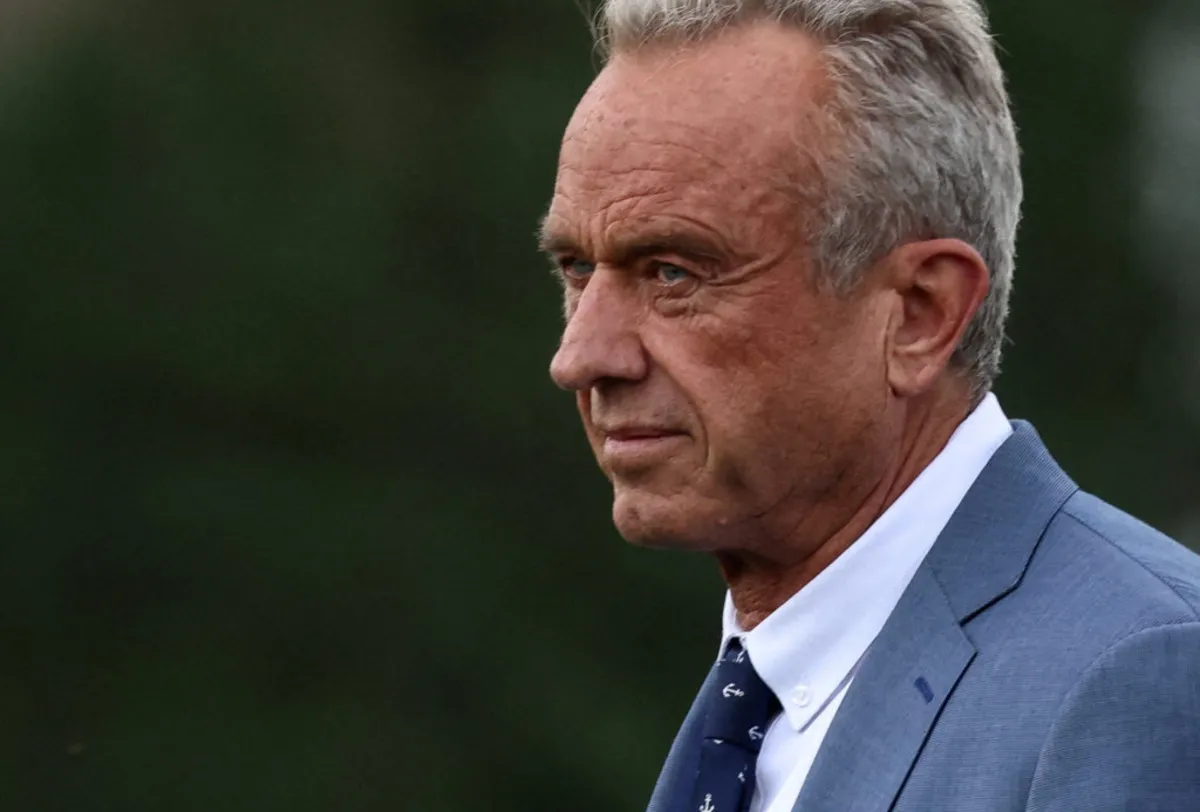
On Sunday, U.S. Health and Human Services Secretary Robert F. Kennedy Jr. made a significant visit to the epicenter of the ongoing measles outbreak in Texas. This visit coincided with the funeral of a second unvaccinated child who tragically lost their life to a measles-related illness. The outbreak, which is still growing, has nearly reached 500 cases in Texas alone, with additional cases reported in New Mexico, Oklahoma, Kansas, and Mexico.
The measles outbreak began in late January and has continued to escalate, particularly in Seminole, Texas, where Kennedy visited to offer condolences to the families mourning the loss of their children. The Texas State Department of State Health Services reported that the second child who died suffered from “measles pulmonary failure” and had no underlying health conditions. This tragic incident marks the third known measles-related death tied to this outbreak, which has already claimed the lives of another child and an adult in New Mexico, both of whom were also unvaccinated.
During his visit, Secretary Kennedy emphasized his commitment to “control the outbreak” and expressed his intention to strengthen community bonds, particularly with the Mennonite community where the virus is predominantly spreading. Despite being an anti-vaccine advocate prior to his appointment as health secretary earlier this year, he acknowledged in a social media statement that vaccination is “the most effective way to prevent the spread of measles.”
The measles, mumps, and rubella (MMR) vaccine has been safely administered for over 60 years and is reported to be 97% effective against measles after two doses. Dr. Manisha Patel, an incident manager at the CDC, reiterated during a press conference that the MMR vaccine is the best defense against measles. She urged parents in Gaines County not to delay seeking medical care for children exhibiting symptoms of measles and to consult health care professionals for guidance.
In light of the rising number of cases, which increased by 81 between March 28 and April 4, public health officials are facing criticism for their messaging. Republican U.S. Senator Bill Cassidy called for stronger communication from health officials, emphasizing the need for everyone to be vaccinated to prevent further tragedies. Cassidy has requested that Kennedy appear before his health committee to address the situation, although Kennedy has not confirmed his attendance.
Misinformation surrounding measles prevention and treatment is complicating public health efforts. Some claims, particularly those promoting vitamin A supplements as a cure, have been circulated by Kennedy and proponents of holistic medicine, despite warnings from medical professionals. Doctors at Covenant Children’s Hospital in Lubbock have reported treating cases of liver issues linked to vitamin A toxicity among unvaccinated children with measles.
Dr. Peter Marks, former vaccine chief at the FDA, criticized Kennedy's approach, stating that the responsibility for the deaths lies with him and his staff. Marks highlighted the urgency for vaccination, asserting that “this is the epitome of an absolute needless death,” and warned that without a more aggressive public health response, more fatalities could occur.
Experts predict that the measles outbreak may persist for several more months, if not a year, particularly as vaccination rates among children continue to decline. With a majority of cases occurring in unvaccinated individuals and children under 17, there are growing concerns that the U.S. could lose its status of having eliminated measles as a public health threat.
Measles is a highly contagious respiratory virus that can survive in the air for up to two hours. According to the CDC, up to 90% of susceptible individuals will contract the virus if exposed. Vaccination is crucial, with the first dose recommended for children aged 12 to 15 months and a second dose for ages 4 to 6 years.